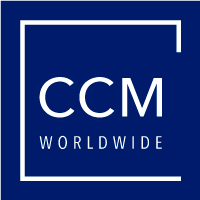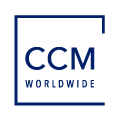development of operational performance
THE CONCEPT OF PERFORMANCE IS ASSOCIATED WITH THE CONCEPTS OF EFFECTIVENESS, EFFICIENCY, CONSISTENCY, AND RELEVANCE

An organisation’s strategy involves identifying ambitious objectives, strengthening a position, reducing costs, improving the quality of services and the range of services offered.
Whatever the strategic choices, their implementation requires operational synergies, productivity gains, securing the offer and services.
CCM assists its clients in identifying and activating performance levers in the construction and implementation of their development strategy and in optimising performance.
Improving processes, managing and controlling risks, optimising workloads, achieving real visibility on operations, consolidating and improving operational flows, developing operational performance, and ensuring the key to long-term success.
CCM assists its clients in the design of projects that are results-oriented and based on the realisation of benefits and customer satisfaction, in terms of cost and quality:
Production management
Quality management
Human resources management
Training
Financial Engineering
Digital Transformation
Production Management
Do you want to implement a CAPM (Computer Aided Production Management) system, based on IT resources adapted to your company’s needs?
Are you looking for a software solution that is truly adapted to manage your production management process?
CCM Worldwide will assist you in defining your project, choosing and implementing it:
The production management functional areas covered are the following :
– CAPM: management of technical data, management by case, management by forecast level, management of production planning with resource allocation, project management, and hierarchical validation of launch stages
– Purchasing and stock management: picking, the anticipated purchases, and the automated minimum stock alert threshold
– CRM, customer, and supplier relationship management
– Sales management: generation of simple estimates, estimates with N-level bills of material with or without an estimate configurator
– Traceability management: batch and serial number management, barcode and QR code tracking management, quality management
– Management tools: processing and restitution of strategic data in customised dashboards, real-time decision analysis.
( functionalities also included: finance, accounting, HR, decision support; the possibility of web services, EDI exchanges, automatic transfers…)
Following the functional analysis phase, we develop your specific needs and functional requirements. Your customised production management tool is perfectly adapted to your business rules.
- Constitution of the technical database.
- Definition of the information system.
- Control of the adequacy of the loads-capacities of the means of production.
- Measuring the product profitability and their contribution to the company’s margin.
Terms of implementation
- Analysis of the existing situation.
- Drawing up specifications.
- Choice of an IT solution (hardware and software packages).
- Coordination with other systems (accounting, payroll, billing, etc.).
- Determination of the implementation stages.
- Training of operators
Quality Management
Quality is not just a matter of common sense, tools and techniques. It is a state of mind, a process of change, and a method that involves everyone in the company. It requires a collective awareness and a permanent evolution of the organisation’s internal culture.
The Quality approach is based on fundamental principles :
- A Policy : quality is a factor in mobilising the company around three inseparable issues, which are levers for operational results.
- The expression of a managerial will symbolised by continuous progress
The objectives of a quality approach are to :
- Stabilise the organisation of a company in accordance with its strategic orientations.
- Describe the functions of all personnel.
- Formalise all the rules and procedures, written and/or unwritten, and update them.
- Put the company on the path to ISO certification at the end of the process.
The organisational structure and methods of the quality system have 4 levels :
- The Quality Assurance Manual.
- Organisational procedures.
- Operational procedures.
- Quality records.
Suggested approach
- Quality diagnosis, external analysis, internal involvement.
- Preparation of quality improvement plans.
- Project launch and programming of the commitment plan.
- System audit.
Terms of implementation
Adaptation of services to customer needs :
- Assistance for the implementation of a quality approach.
- Support and training of a pilot group and managers.
- Preparation for certification.
- Blank audit
Human Resources Management
The objective of human resource management is to respond to changes that affect the organisation of work and the skills required by new work situations. It involves identifying gaps and training needs and implementing human resources management policies.
CCM offers to organize the human resources management approach around your strategy, by :
- Identifying gaps between current and future needs in jobs and skills.
- Anticipating gaps and implementing policies and action plans to reduce them.
- Identifying training needs.
- Developing multi-year training plans.
- Formalising work materials and developing an HRM information system.
Terms of implementation
Adaptation of services to customer needs :
- Analysis of the expected evolution of existing resources.
- Definition of desirable jobs.
- Design and implementation of action plans (training, recruitment, internal mobility and retraining, work organisation and working time arrangements, external departures and retraining, etc.).
- Drawing up job descriptions for standard jobs.
- Development of human resources management tools and their automation.
- Identification of training needs and development of multi-year training plans.
- Training of trainers
Customised Training
Today, the status and purpose of training have evolved considerably. Open, efficient and competitive, training is a strategic tool for the modernisation of administrations and the upgrading of companies.
On the one hand, training is an investment in which the organisation must be able to measure its profitability.
On the other hand, as part of its strategy, it must be based on the lived reality of the organisations and contribute, in the same way, to their development and their employees.
Suggested approach
A 6-phase methodology, to better respond to the specific problems of each customer :
- Context finding.
- Audit.
- Content recommendation.
- Testing.
- Training.
- Coaching.
Terms of implementation
Adaptation of services to customer needs :
- Support for the definition of a multi-annual training plan.
- Organisation of training and implementation.
- One-off mission to deal with a particular problem
Financial Engineering
- Study and financial dimensioning of projects in various fields and sectors of activity: industry, services, professional training, education, sport, new technology, tourism, leisure, etc.
- Evaluations and financial re-engineering.
- Financing study and search for partners.
- Profitability and financial sensitivity studies.
- Portfolio optimisation management.
- Stock market listing.
- Financial diagnosis, evaluation of the financial potential of companies and NGOs and optimisation, merger/acquisition.
- Optimisation of investments and assistance in finding grants.
- Study and implementation of a cost accounting and budgeting system.
- Study and implementation of a budgetary control system.
- Financing development projects and searching for donors.
- Study and preparation of applications for funding institutions.
- Study and implementation of a financial control and optimisation system.
- Restructuring of companies in difficulty: study of financial risks, elaboration of financial rescue programs, profitability study of
- restructuring projects, and measurement of forecast risks
Digital Transformation
Today all organisations must integrate digital technologies into their core business processes in order to improve their performance.
This technological change has transformed the global economy. It is a true digital revolution that has established new purchasing and consumption habits.
Digital transformation is a complex process, which requires both :
- the full integration of digital technologies into the company’s activities.
- Implementing the organisational changes necessary to exploit these digital tools.
Indeed, this transformation implies deep changes for all employees, at all levels of the hierarchy. Digital technology is leading to the emergence of new uses, new ways of working, communicating and also selling.
On the basis of a diagnosis carried out alongside you, we help you to take a step back and build a strategy that meets your objectives.
Our experts will assist you in setting up a global digital strategy by creating innovative web/mobile solutions, adapted to the expectations of our clients and responding to current strategic issues :
- Making it easier to deploy and use the service,
- Centralize information,
- Automate services,
- Improve efficiency,
- Getting information quickly,
- Make data accessible online, mobile, and remote,
- Make a process easier,
- Store data securely,






